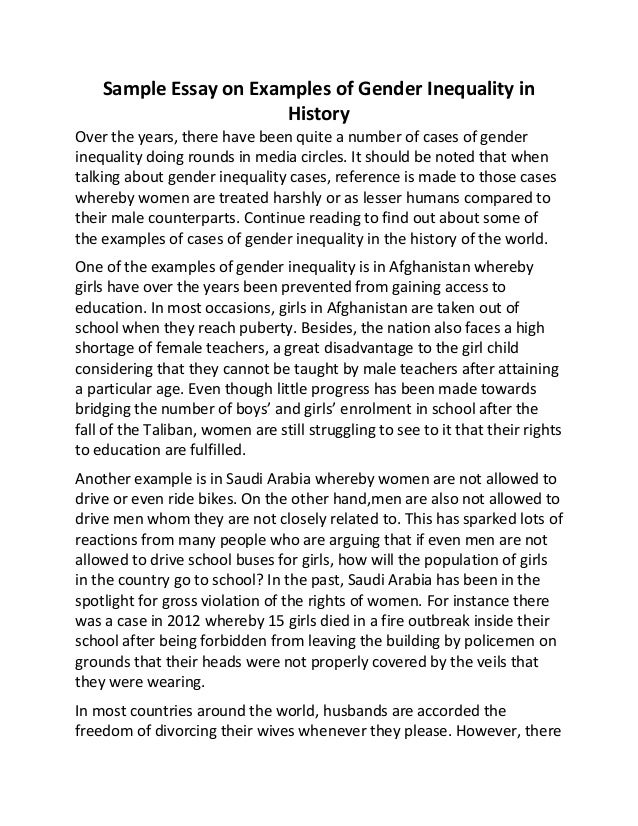
Related topics
Solution How We Can Lower The Gender Discrimination Are As Follow: 1) Remove gender inequality from home and then from society. 2) Providing equal education to girls and boys. 3) Giving women equal opportunity in social, economic and in political arenas. 4) Create more social awareness in society and in nation · Gender inequality is the situation where human beings are treated party or wholly unequally due to their gender. Typically gender inequality stems up for the different gender roles within our social setups. Gender inequality mainly arises from distinctions either socially or empirically constructed Gender inequality – A Global issue Zulfqar Ashraf wani 1 1 Research Scholar, Department of Sociology and social work Barkatullah University, Bhopal
Background
“Despite many improvements in the status of women there are still many inequalities: · Two thirds of people in the world who cannot read are female. · Nearly seventy percent of the world's poorest people are female. · Women represent a growing proportion of people living with HIV/AIDS Pages: 5 Words: Topics: Caregiver, Critical Theory, Family, Feminism, Gender, Gender Equality, Gender Inequality, Gender Roles, Masculinity, Sex Inequality of Pay in Sports “In the quest for women to receive adequate resources, sponsorships and financial compensation you will always find yourself touching the very controversial topic of “inequality of pay in sports” There is growing interest in new dimensions of gender (in)equality, such as gender-environmental inequality (Ma, Liu, Mitchell, & Dong, ); although most economists have until recently focused Estimated Reading Time: 3 mins

Sociological theories
Answer 1: Gender inequality refers to the unequal and biased treatment of individuals on the basis of their gender. This inequality happens because of socially constructed gender roles. It happens when an individual of a specific gender is given different or disadvantageous treatment in comparison to a person of the other gender in the same circumstance · This paper explores various sociological perspectives on gender inequality as evident in the contemporary society. Sociological theories Horney observes that when addressing gender inequality, the basic psychoanalytic paradigm can be used Gender inequality – A Global issue Zulfqar Ashraf wani 1 1 Research Scholar, Department of Sociology and social work Barkatullah University, Bhopal

“Despite many improvements in the status of women there are still many inequalities: · Two thirds of people in the world who cannot read are female. · Nearly seventy percent of the world's poorest people are female. · Women represent a growing proportion of people living with HIV/AIDS · This paper explores various sociological perspectives on gender inequality as evident in the contemporary society. Sociological theories Horney observes that when addressing gender inequality, the basic psychoanalytic paradigm can be used · Gender inequality is the situation where human beings are treated party or wholly unequally due to their gender. Typically gender inequality stems up for the different gender roles within our social setups. Gender inequality mainly arises from distinctions either socially or empirically constructed

· Gender inequality is the situation where human beings are treated party or wholly unequally due to their gender. Typically gender inequality stems up for the different gender roles within our social setups. Gender inequality mainly arises from distinctions either socially or empirically constructed · This paper explores various sociological perspectives on gender inequality as evident in the contemporary society. Sociological theories Horney observes that when addressing gender inequality, the basic psychoanalytic paradigm can be used Answer 1: Gender inequality refers to the unequal and biased treatment of individuals on the basis of their gender. This inequality happens because of socially constructed gender roles. It happens when an individual of a specific gender is given different or disadvantageous treatment in comparison to a person of the other gender in the same circumstance
No comments:
Post a Comment